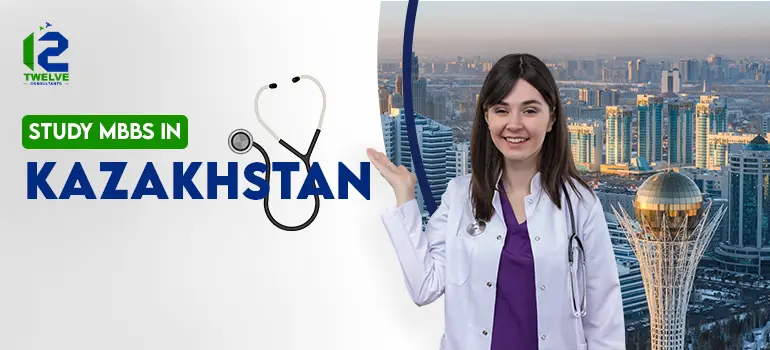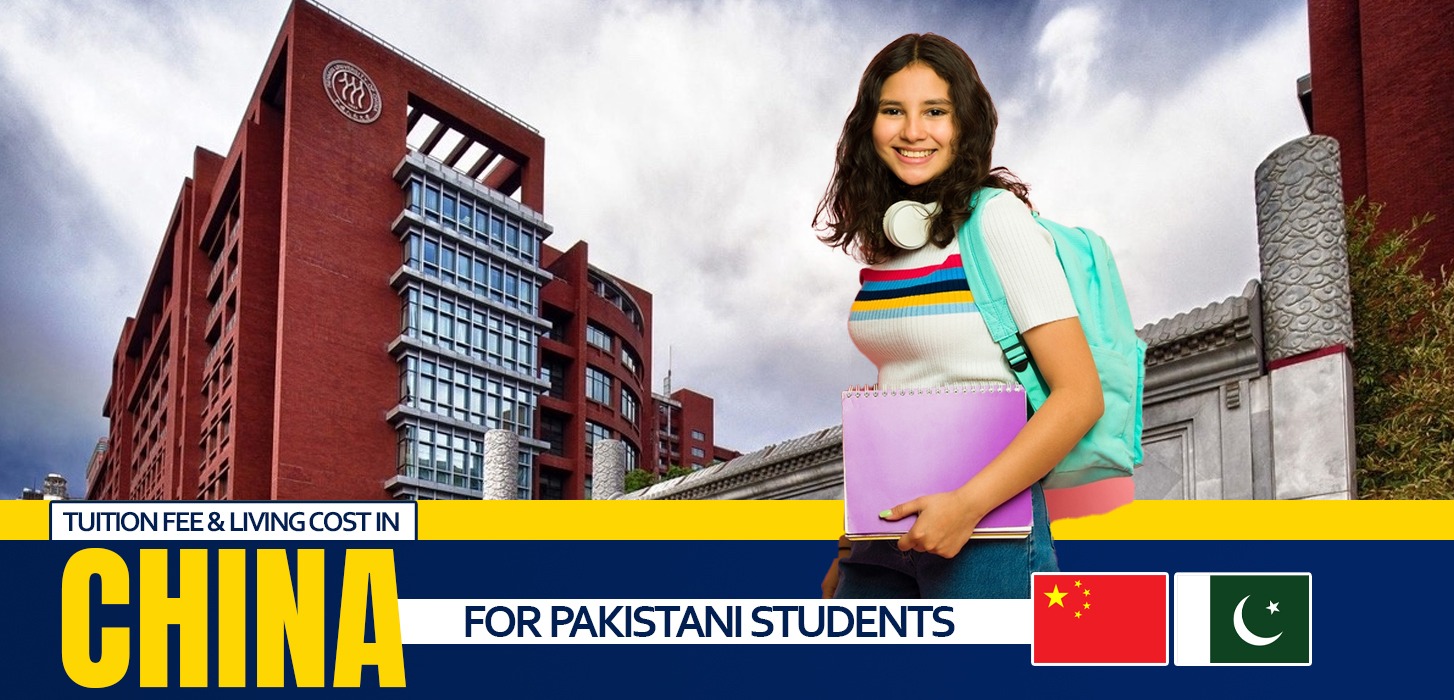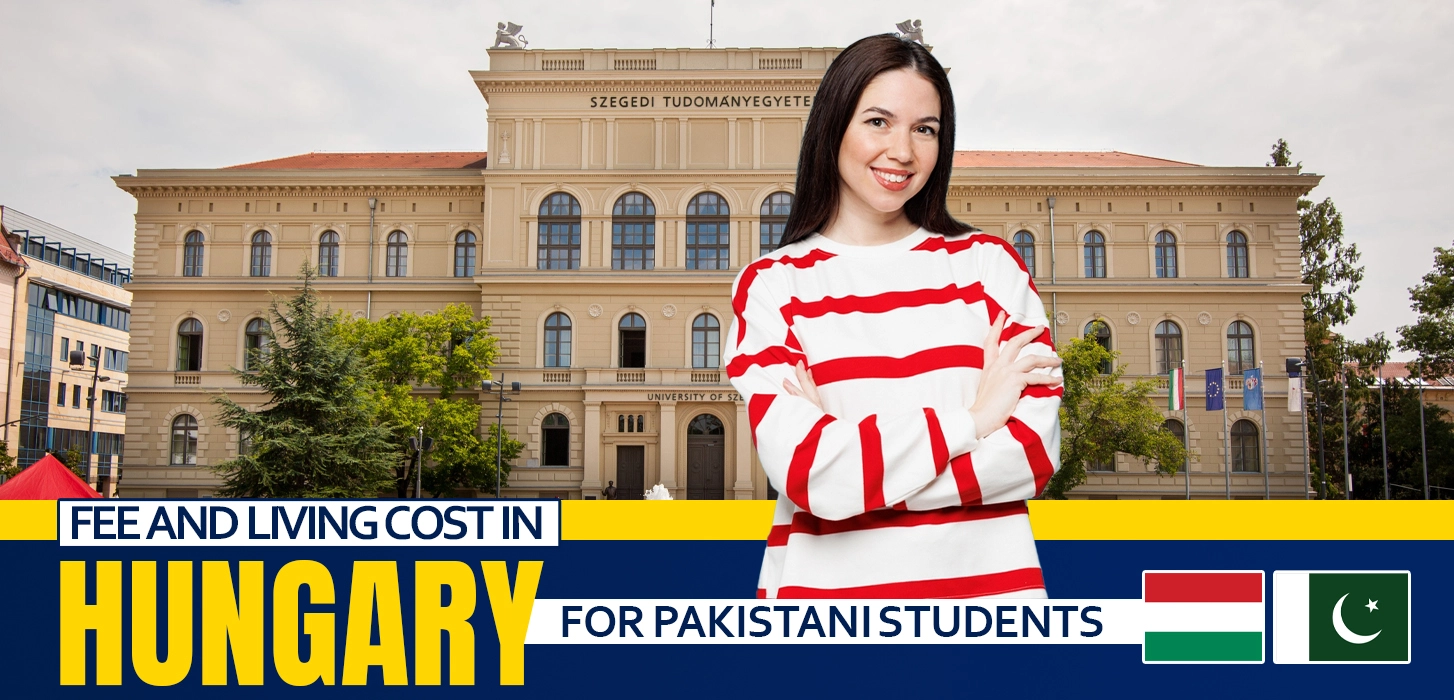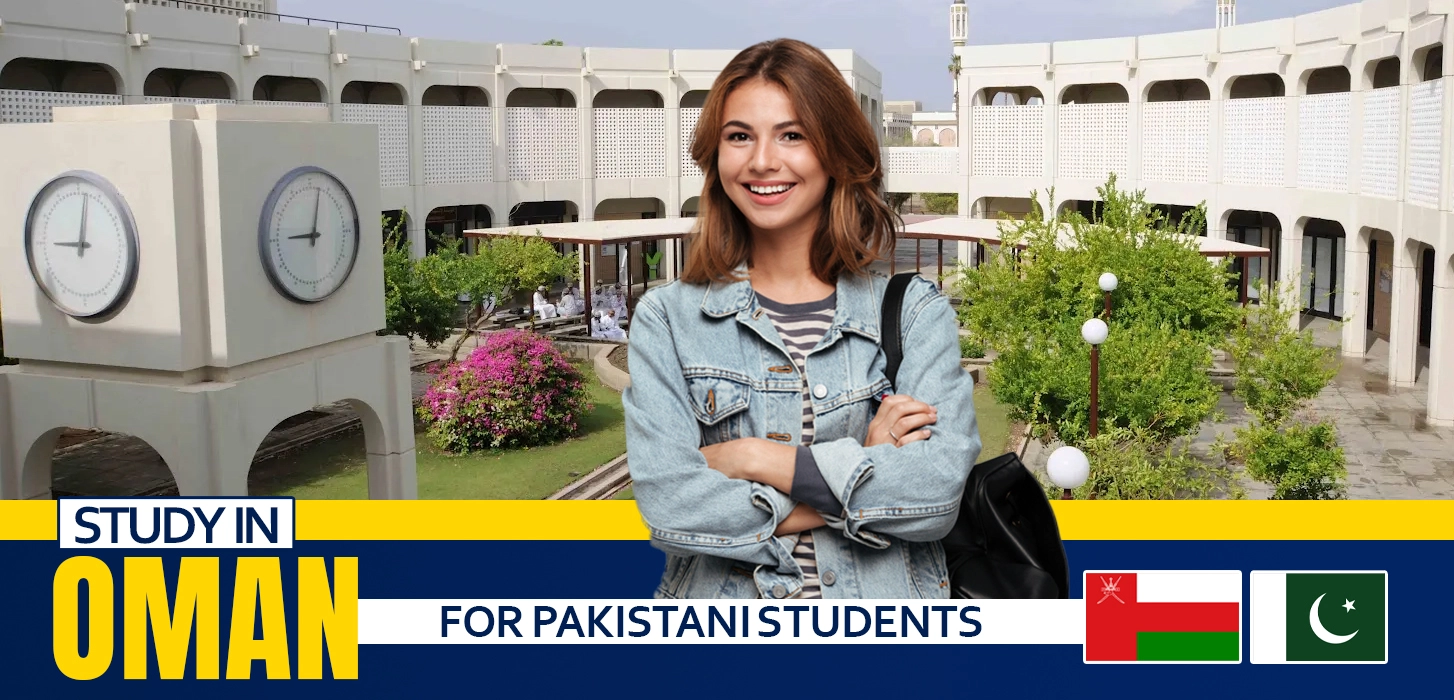
Study MBBS in Kazakhstan 2025-26 | Tuition Fee | Visa Guide
Kazakhstan, with its rapidly growing education sector, has become an attractive destination for international students aspiring to study medicine. Understanding the intricacies of the admission process is crucial for prospective MBBS students. This guide provides a comprehensive overview of the admission criteria and application process for studying MBBS in Kazakhstan.
| Location | Central Asia, Largest Landlocked Country. |
| Currency | Kazakhstani Tenge (KZT). |
| Language | English, Russian, Kazakh (Varies by Program). |
| Work Allowed | Part-time jobs available for students. |
| Global Recognition | Degrees recognized internationally. |
| Tuition Fees | Affordable, Varies by Program and University. |
| Accommodation | Costs vary, $150 – $500/month. |
| Living Expenses | Moderate, $300 – $600/month. |
| Intakes | Mainly September, Few in January. |
| Visa Processing | Typically 1-2 months. |
| Application Fee | Varies, Usually $50 – $150. |

Astana Medical University: Astana Medical University is one of the leading medical institutions in Kazakhstan. With a focus on research and practical training, the university offers a comprehensive MBBS program. Students benefit from modern facilities and experienced faculty members, preparing them for successful medical careers. Average Tuition Fee: $5,000 – $6,500 per year.
Semey State Medical University: Semey State Medical University is known for its high academic standards and research activities. The university’s MBBS program emphasizes a strong foundation in medical sciences and practical skills. Students have access to clinical training in affiliated hospitals. Average Tuition Fee: $4,500 – $5,800 per year.
Karaganda Medical University: Karaganda Medical University offers a diverse and challenging curriculum for aspiring medical professionals. The university focuses on hands-on experience and clinical rotations, providing students with opportunities to apply theoretical knowledge in real-world medical settings. Average Tuition Fee: $4,000 – $6,000 per year.
Al-Farabi Kazakh National University: Al-Farabi Kazakh National University is a prestigious institution offering a comprehensive MBBS program. Students benefit from a multidisciplinary approach to medical education, engaging in research and practical training. The university is known for its international collaborations and research initiatives. Average Tuition Fee: $5,500 – $7,000 per year.
West Kazakhstan Marat Ospanov State Medical University: This university is recognized for its commitment to medical education and healthcare research. The MBBS program at this university is designed to meet international standards, focusing on clinical skills and research-oriented learning. Average Tuition Fee: $4,800 – $6,200 per year.
South Kazakhstan Medical Academy: South Kazakhstan Medical Academy offers a student-centered learning environment. The university’s MBBS program emphasizes problem-solving skills and practical training. Students have the opportunity to participate in medical camps and community health projects. Average Tuition Fee: $4,200 – $5,500 per year.
Kazakh Medical University of Continuing Education: Kazakh Medical University of Continuing Education is known for its innovative teaching methods and modern infrastructure. The university’s MBBS curriculum integrates clinical exposure and research, preparing students for the evolving healthcare industry. Average Tuition Fee: $5,000 – $6,500 per year.
Kazakh National Medical University: With a rich history and experienced faculty, Kazakh National Medical University offers a rigorous MBBS program. The university focuses on holistic medical education, emphasizing ethics, communication skills, and hands-on training. Average Tuition Fee: $5,500 – $7,000 per year.
Pavlodar State University: Pavlodar State University provides a comprehensive medical education program with a focus on community health and primary care. The university’s MBBS curriculum includes rural healthcare rotations, giving students exposure to diverse patient populations. Average Tuition Fee: $4,000 – $5,500 per year.
Asfendiyarov Kazakh National Medical University: Asfendiyarov Kazakh National Medical University is a renowned institution offering an MBBS program that combines theoretical knowledge with practical skills. The university has strong ties with healthcare institutions, providing students with ample opportunities for clinical experience. Average Tuition Fee: $5,200 – $6,800 per year.
| University Name | Average Tuition Fee Range (per year) |
|---|---|
| Astana Medical University | $5,000 – $6,500 |
| Semey State Medical University | $4,500 – $5,800 |
| Karaganda Medical University | $4,000 – $6,000 |
| Al-Farabi Kazakh National University | $5,500 – $7,000 |
| West Kazakhstan Marat Ospanov State Medical University | $4,800 – $6,200 |
| South Kazakhstan Medical Academy | $4,200 – $5,500 |
| Kazakh Medical University of Continuing Education | $5,000 – $6,500 |
| Kazakh National Medical University | $5,500 – $7,000 |
| Pavlodar State University | $4,000 – $5,500 |
| Asfendiyarov Kazakh National Medical University | $5,200 – $6,800 |
Eligibility Requirements
To be eligible for an MBBS program in Kazakhstan, candidates typically need to have completed their secondary education with a strong emphasis on science subjects, including Biology, Chemistry, and Physics. Proficiency in the English language, often demonstrated through standardized tests like IELTS or TOEFL, is also a common requirement. Some universities may set specific minimum percentages in these subjects for eligibility.
Entrance Exams
Many Kazakhstani medical universities conduct entrance exams to assess applicants’ knowledge in relevant subjects. These exams, covering topics such as Biology, Chemistry, and Physics, play a significant role in the selection process. Thorough preparation and a strong performance in these exams enhance the chances of securing admission.
Application Procedure
The application process for MBBS programs in Kazakhstan usually involves filling out an online application form and submitting essential documents. These documents may include academic transcripts, certificates, a valid passport, and proof of language proficiency. It is imperative for applicants to review the document requirements of the chosen university meticulously and ensure timely and accurate submission.
Recognition of Degrees
Before finalizing a choice of university, applicants should verify the recognition of the degree offered. Opting for universities recognized by international medical bodies, such as the World Health Organization (WHO), ensures the degree’s global acceptance. Recognition by national medical councils, such as the Medical Council of India (MCI), is also essential for future licensure and practice opportunities in various countries.
Tuition Fees and Scholarships
Kazakhstan is known for offering affordable tuition fees for international students. However, fees can vary between universities and programs. Prospective students should research the fee structures of different institutions to make an informed decision. Additionally, exploring scholarship options based on academic merit or other criteria can significantly ease the financial burden of education.
Visa Requirements and Residence Permit
Upon receiving an acceptance letter from a Kazakhstani university, students need to apply for a student visa. The visa application process involves providing necessary documents, including the admission letter, proof of financial means, and a valid passport. After arriving in Kazakhstan, students are required to obtain a student residence permit. Adhering to visa and residence permit regulations is crucial to ensure legal compliance during the course of the studies.
Accommodation and Living Expenses
Kazakhstan offers various accommodation options, including university dormitories and private apartments. Students should explore these options based on their budget and preferences. Additionally, budgeting for living expenses, encompassing food, transportation, and personal needs, is essential for a financially stable and comfortable stay throughout the academic tenure.

Admission Process:
Begin your journey by applying to a recognized medical university in Kazakhstan. Ensure you meet all academic requirements, submit necessary documents such as transcripts, recommendation letters, and a personal statement. Some universities might require additional entrance exams or interviews.
Acceptance Letter and Confirmation of Enrollment:
Upon acceptance, you’ll receive an official acceptance letter from the university. This letter confirms your enrollment and is a crucial document for your visa application.
Student Visa Application Requirements:
Prepare a comprehensive set of documents including a valid passport, completed visa application form, proof of acceptance from the university, financial proof demonstrating your ability to cover tuition and living expenses, travel insurance, and a medical certificate. Each embassy or consulate might have specific requirements, so it’s essential to check the official website for the most accurate information.
Language Proficiency and Preparatory Courses:
Ensure you meet the university’s language proficiency requirements. Some universities offer preparatory courses for international students who need to enhance their language skills before starting the main program.
Visa Application Submission:
Submit your visa application and documents to the nearest Kazakh embassy or consulate. Pay attention to deadlines and ensure all information provided is accurate and complete.
Visa Interview (if required):
Prepare for a visa interview if the embassy or consulate requires one. Be ready to answer questions about your intended stay, your choice of university, and your plans after completing your studies.
Financial Planning and Scholarships:
Research available scholarship opportunities. Additionally, plan your finances carefully to cover tuition, accommodation, food, transportation, and other personal expenses during your stay in Kazakhstan.
Health Insurance and Medical Check-up:
Acquire comprehensive health insurance coverage that is accepted in Kazakhstan. Some universities might require a medical check-up upon arrival.
Arrival and Orientation:
Upon arrival in Kazakhstan, attend the university’s orientation program. Familiarize yourself with the campus, local culture, and essential facilities. Register with local authorities as per the country’s regulations.
Student Support Services:
Explore the student support services offered by the university. These services might include academic advising, counseling, and assistance with accommodation.
Stay Updated with Regulations:
Stay informed about any changes in Kazakh immigration regulations. Regularly check the official website of the Ministry of Foreign Affairs of Kazakhstan and the respective university for the most recent updates.
To be eligible for MBBS programs in Kazakhstan, students generally need to meet the following criteria:
- Completion of higher secondary education with a strong background in Science (Biology, Chemistry, and Physics).
- Proficiency in English or Russian languages, as many medical courses are taught in these languages.
- Some universities may require a qualifying score in entrance exams like NEET (National Eligibility cum Entrance Test) for Indian students.
- Meeting specific requirements set by the chosen university, such as a minimum GPA or entrance exam score.
MBBS programs in Kazakhstan typically have a duration of 5 to 6 years. The curriculum is well-structured, focusing on theoretical knowledge, practical training, and clinical rotations. The first few years emphasize basic medical sciences, followed by pre-clinical and clinical studies. Students also undergo practical training in hospitals and clinics to gain hands-on experience in patient care.
Yes, international students studying in Kazakhstan are generally allowed to work part-time during their studies. However, there are regulations regarding the number of hours students can work per week, typically ranging from 10 to 20 hours. Students must obtain a work permit from the local authorities and follow the rules and guidelines provided by their university and the Kazakh government.
Yes, MBBS degrees obtained from reputable medical universities in Kazakhstan are internationally recognized. Graduates can pursue further education or practice medicine in various countries around the world. It is essential to choose universities that are accredited and recognized by international medical bodies and organizations.
The tuition fees for MBBS programs in Kazakhstan vary depending on the university and the program’s duration. On average, the annual tuition fees range from $3,000 to $6,000 for international students. Living expenses, including accommodation, food, transportation, and miscellaneous expenses, are also relatively affordable, averaging around $300 to $500 per month, depending on the city and lifestyle.

Latest Post
Lithuania has become an attractive destination for Pakistani students seeking...
Many Pakistani students dream of studying abroad but are often...
According to the Ministry of Education and Research report, In...
Pursuing higher education in New Zealand is a top destination...
The UK has always been a student-preferred destination for gaining...
Understanding the tuition fee & living cost in China is...
Hungary is an increasingly popular choice for Pakistani students pursuing...
Studying in Oman is an excellent opportunity for Pakistani students...










